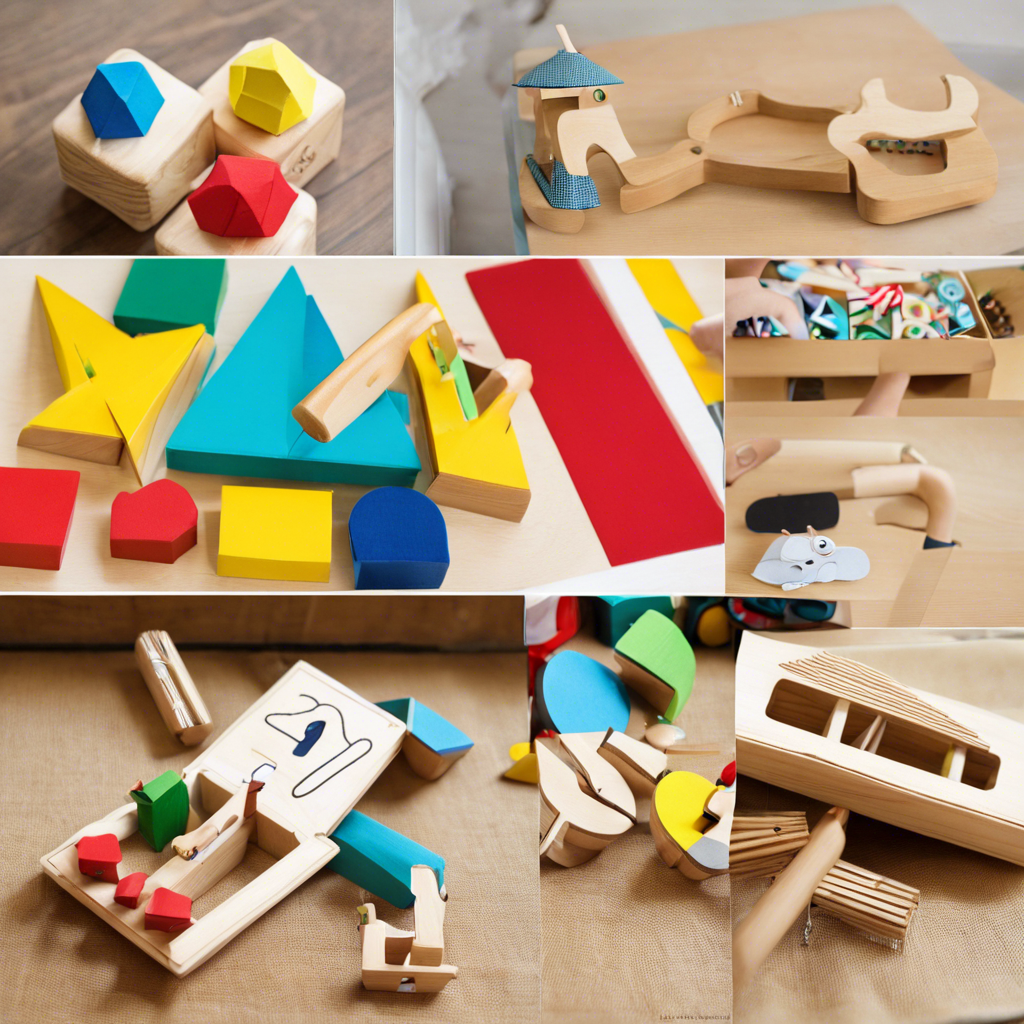Parents and caregivers are always on the lookout for toys that will engage and delight their little ones while offering educational benefits. In today’s market, handmade toys are making a comeback, offering unique and creative options that blend play and learning seamlessly. These toys are like educational treasures, offering a wealth of benefits that extend beyond the typical play experience.
Handmade toys for little learners have a special charm. They are crafted with care, often using natural materials, and exhibit a level of uniqueness that mass-produced toys sometimes lack. Wooden blocks, hand-sewn stuffed animals, and woven play mats are just a few examples of these artisanal creations. Each toy has its own character and story, often reflecting the culture and traditions of the craftsperson who made it. By choosing handmade, parents can connect their children to a rich heritage of craftsmanship and support small businesses or artisans who put love and expertise into each creation.
These toys offer a multitude of benefits that support a child’s development. Handmade toys often encourage open-ended play, stimulating creativity and problem-solving skills. They can inspire a child’s imagination, leading to hours of immersive play and the creation of new worlds. For instance, a set of hand-carved wooden animals can become characters in a child’s imaginary forest, fostering language development and social skills. Similarly, handmade cloth dolls with changeable outfits can spark an interest in fashion design and enhance fine motor skills.
The sensory experience of playing with natural materials is another advantage. Handmade toys made from wood, fabric, or clay offer a tactile experience that engages a child’s sense of touch. The weight and texture of these materials provide a connection to the natural world, which is often lacking in plastic toys. For instance, a baby grasping a wooden rattle feels the smoothness of the wood, promoting sensory development. Similarly, a toddler playing with handmade cloth books, feeling the different textures on each page, enhances their tactile experience.
Handmade toys often showcase attention to detail and quality craftsmanship. Artisans take pride in their work, ensuring that each toy is durable and can withstand the rigors of playful exploration. This longevity benefits not only the child who first receives the toy but also subsequent generations. Passing down a well-crafted handmade toy becomes a tradition, creating a sense of continuity and fostering an appreciation for timeless playthings.
Additionally, handmade toys often encourage parental involvement in playtime. Their open-ended nature invites parents and caregivers to join in, fostering meaningful interactions and bonding opportunities. Playing together enhances the child’s enjoyment and promotes a positive association with learning. For example, a parent and child building a tower with handmade wooden blocks not only strengthens their relationship but also teaches the child about balance and stability.
Handmade toys offer a link to sustainability and environmental awareness. Many artisans use sustainably sourced materials and create toys that are biodegradable or recyclable. This promotes a more eco-friendly mindset and educates children about the importance of caring for the planet. Teaching children at a young age about sustainability is invaluable. Parents can use these toys as a tool to start conversations about the environment and the impact of their choices, fostering a sense of responsibility and awareness.
In a world where educational resources are abundant, handmade toys offer a unique blend of fun and learning that caters to multiple intelligences. They engage children through tactile exploration, imaginative play, and open-ended discovery, allowing them to learn about the world around them and develop essential skills. By choosing handmade toys, parents and caregivers are providing their little learners with educational treasures that offer a rich and holistic play experience.
Supporting small businesses and artisans who create these toys has a positive social impact. Many handmade toy creators are independent artists or small businesses with a passion for craftsmanship and a commitment to quality. When consumers purchase handmade, they are directly supporting these individuals and their local communities. This contributes to a thriving maker culture and promotes the continuation of traditional skills and techniques that might otherwise be lost.
Lastly, handmade toys often become cherished keepsakes that hold sentimental value. The unique and individual nature of these toys means they are often kept long after the child has outgrown them. They become reminders of precious childhood moments and can even be passed down through generations as family heirlooms. The love and care that go into handmade toys make them special companions during a child’s formative years, and their presence in a child’s life can leave a lasting impression.

